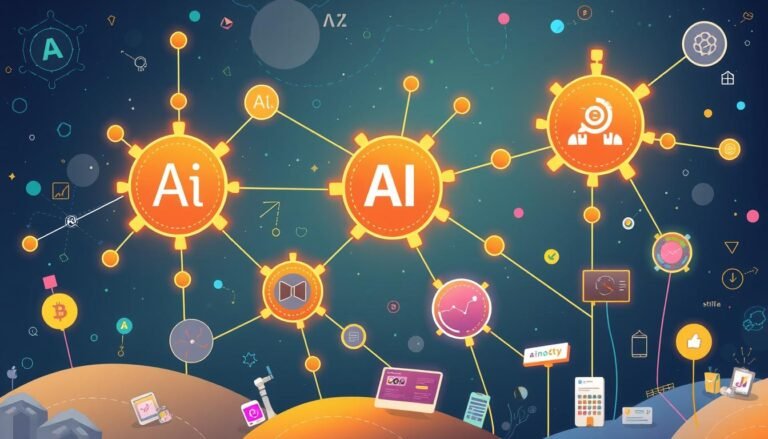Exploring the Potential of AI Platforms for Revolutionizing Publishing Strategies
The publishing industry is undergoing a seismic shift, thanks to the rapid advancements in artificial intelligence (AI). From content creation to audience engagement, AI-driven platforms are redefining how publishers operate, making processes faster, smarter, and more efficient.
By leveraging AI, publishers can unlock powerful insights, automate workflows, and personalize content at an unprecedented scale. Whether it’s predictive analytics for market trends, AI-generated writing assistance, or automated distribution strategies, these technologies are reshaping the way content is produced and consumed. As competition intensifies, embracing AI is no longer an option but a necessity for staying ahead in the digital landscape.
In this post, we’ll explore six key potentials of AI platforms that are transforming publishing strategies, and helping businesses innovate, optimize, and thrive in an ever-evolving market. Let’s get started.
AI-Driven Content Creation
AI-powered tools are revolutionizing content creation by assisting writers, editors, and publishers in generating high-quality articles, reports, and even books. These platforms use natural language processing (NLP) to analyze trends, suggest relevant topics, and refine writing styles based on audience preferences. AI-generated content isn’t just about automation; it also enhances creativity by providing unique insights and alternative phrasing suggestions, allowing human writers to focus on storytelling rather than repetitive tasks.
AI-driven content generation also helps scale production, ensuring that publishers can meet increasing demand without compromising quality. With machine learning continuously improving these tools, publishers can produce engaging, data-driven content faster and more efficiently than ever before.
The Emergence of AI Publishing Platforms
AI-powered publishing platforms are redefining how content is produced, distributed, and consumed. These platforms integrate AI-driven tools for automated layout design, metadata tagging, and intelligent formatting, reducing manual effort while enhancing content discoverability. For instance, the future of AI in Publishing now focuses on how these platforms are not only automating traditional publishing workflows but also enabling smarter content curation and audience engagement. AI-powered tools analyze reader preferences, optimize search engine visibility, and recommend strategic publishing timelines to maximize reach.
Machine learning algorithms also refine content based on performance data, ensuring continuous improvement in quality and relevance. As AI technology advances, these platforms will become even more adaptive, offering real-time insights and predictive analytics to help publishers make data-driven decisions.
Personalized Content Recommendations for Targeted Engagement
AI platforms are transforming audience engagement through personalized content recommendations, ensuring that readers receive content tailored to their interests. Machine learning algorithms analyze user behavior, browsing history, and reading patterns to suggest articles, books, or multimedia content that align with individual preferences. This level of personalization not only increases reader satisfaction but also boosts retention rates and monetization opportunities.
For publishers, AI-powered recommendation engines enable strategic content delivery, helping them curate content that resonates with different audience segments. By integrating AI-driven personalization, publishers can enhance the user experience, drive more traffic, and create deeper connections with their audience, ultimately fostering long-term loyalty and increased revenue streams.
Optimizing Editorial and Proofreading Processes with AI
Editing and proofreading are crucial yet time-consuming tasks in the publishing industry. AI platforms streamline these processes with advanced grammar-checking tools, style suggestions, and contextual analysis. Beyond basic spell-checking, AI-driven editing tools can detect inconsistencies, improve readability, and ensure adherence to brand guidelines. Additionally, AI-powered plagiarism detection software safeguards originality by cross-referencing vast databases of published material.
Publishers leveraging AI for editing not only reduce the workload on human editors but also enhance accuracy and efficiency. By automating tedious proofreading tasks, editorial teams can focus on refining content quality, shaping narratives, and delivering polished work that meets professional publishing standards.
AI-Driven Market Analytics for Smarter Publishing Decisions
Understanding market trends and reader preferences is crucial for publishing success, and AI-driven analytics provide valuable insights to guide strategic decisions. AI tools process vast amounts of data, identifying emerging topics, audience behaviors, and content performance metrics. Publishers can leverage predictive analytics to determine which genres, themes, or formats are gaining traction, allowing them to make data-driven decisions about content creation and distribution.
Additionally, AI-powered sentiment analysis helps publishers gauge audience reactions and adjust strategies accordingly. By integrating AI-driven analytics, publishing companies can optimize their marketing efforts, improve content relevance, and stay ahead of evolving industry trends with precision and confidence.
Automating Content Distribution for Maximum Reach
AI is streamlining content distribution by automating multi-channel publishing, ensuring that content reaches the right audience at the right time. AI algorithms analyze user engagement patterns and recommend the best times and platforms for content distribution, maximizing visibility and impact. Automated social media scheduling, AI-driven email marketing, and intelligent SEO optimization further enhance content discoverability.
AI-powered chatbots and voice assistants also facilitate seamless content interaction, expanding audience reach across different digital ecosystems. By leveraging AI for content distribution, publishers can efficiently scale their efforts, increase audience engagement, and ensure that their content remains relevant and accessible across various digital platforms.
AI platforms are transforming the publishing industry by enhancing efficiency, personalization, and strategic decision-making. From AI-driven content creation to automated distribution, these technologies empower publishers to optimize workflows, engage audiences more effectively, and stay competitive in a rapidly evolving digital landscape.
As AI continues to advance, its role in publishing will only expand, offering new opportunities for innovation and growth. Embracing AI-driven tools is no longer a luxury but a necessity for publishers seeking to scale their operations and enhance content quality. Those who adapt to this revolution will thrive, while those who resist may struggle to keep pace.







